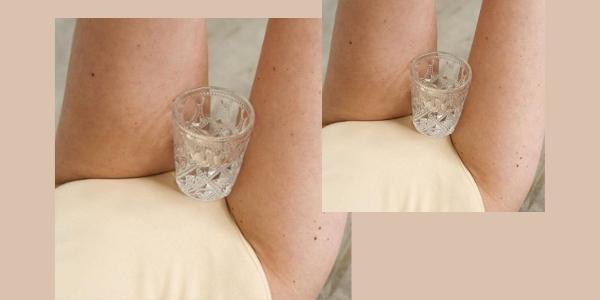Do you REALLY need a vagina wash?

Your vagina shouldn’t smell like a bouquet of flowers, despite what teen mags and commercials in the 2000s had us believe. But what these guys failed to educate us on is one simple thing: your vagina cleans itself. Again for the people in the back. Your vagina cleans itself.
So, do you REALLY need a special femme wash for down there? And what the heck are pH levels? We’re diving deep into caring for your vajeen.
But, before we go any further, let’s recap some basic anatomy.

The vagina is the inner canal inside your body. Most of the time when people talk about washing down there, they’re referring to washing your vulva, not your vagina. Please don’t put anything inside your vagina if it hasn’t bought you dinner and asked nicely first.
And the vulva is all external organs including your labia, all-important clitoris and external openings of the urethra (a.k.a, the hole you pee from). In other words, it is the whole shebang. And shebangs only require warm water to stay fresh and fancy, but can be washed with the RIGHT pH balanced products if that’s your preference.
Okay, let's get into it.
First things first. What the heck is pH?
Lab coats on. pH is a scale in science used to measure how acidic, natural or alkaline something is. The pH scale ranges from 0-14, with 7 being neutral. When the number is higher than 7, a solution is more alkaline. When it’s less than 7, it’s more acidic.
What’s a normal pH level for your vagina?
Your vagina has a pH balance between 3.8 and 4.5. But this can fluctuate at different stages of your life. So, your vagina is considered acidic. This is why you’ll notice slight discolouration on your undies after regular wear. Here’s a handy dandy chart to see how your Vagina pH compares to other common products:

How does pH affect my hoo-ha?
Having a slightly acidic environment down there protects your vagina. This is because good bacteria flourishes in this environment, whereas bad bacteria does not. SO when your pH levels are disrupted, your risk of developing infections like bacterial vaginosis or yeast infections increases.
How does soap affect my vagina’s pH level?
Like we mentioned earlier, your vagina cleans itself. It’s pretty good at it, too. Soap is alkaline and washing your vagina with soap can increase your pH levels making the environment in your vagina less acidic, more alkaline and therefore, less protected from infection.
Okay, what about those feminine washes?
This is where our anatomy lesson comes in handy. While your vagina is best left to its own devices, you do need to wash your vulva. When it comes to washing your vulva, there are definitely some good options. The best option is warm water, nice and neutral (remember the chart 👆) Otherwise, a pH balanced feminine wash that has been formulated to be gentle and is fragrance-free is a safe option for most women.
But just remember, anything that claims that there’s something wrong with our natural odour or that we’re less than fresh down there gets a slap on the wrist from us. Subtle smells are normal. Discharge is normal. And remember, the only thing that cleans your vagina, is your vagina.
How can you tell when things are off?
While your hoo-ha should never smell like a fresh field of tulips, it’s easy to notice when things are a little funky. If you’ve got a fishy smell, are noticing changes in your discharge, or things feel a little itchy or burny, time to book an appointment with your doc.
What else can you do to keep your ph levels happy?
Avoid douching, wear condoms, and grab yourself some bamboo undies. Our cute and comfy basics are the over-achieving pair your peach never knew it needed. They’re antibacterial, antifungal, moisture-wicking, and odour-resistant to keep your hoo-ha free from thriving bacteria and reduce the risk of vag irritation and infection. All wrapped up in a neat little package and delivered to your door.
Hugs & Knickers
xxx
Disclaimer: Keep in mind that we are not doctors. This blog is intended as informational. It is not medical advice. If you need medical advice, please see your GP, pronto.




